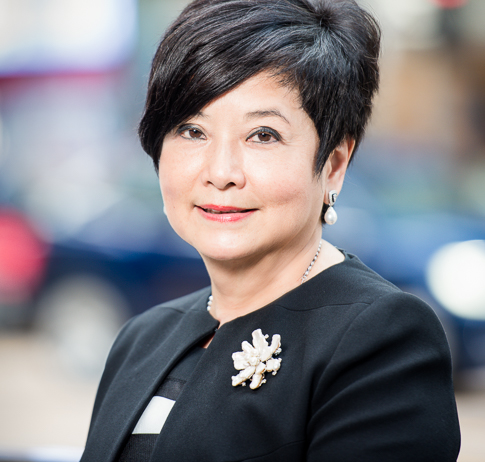Article
How Asia’s most successful founders can keep their firms in the family
26 September 2023 | Applicable law: Hong Kong, Singapore | 6 minute read
“I would argue that family-run businesses can be more effective than public companies. Leadership has better control and can be more agile in terms of being able to pivot,” says Chenthil Kumarasingam, a litigation and arbitration partner for Withers KhattarWong in Singapore.
The model is certainly working well in Asia at present. The continent is home to two-thirds of the largest family firms in the world, including Samsung, LG, Tata Group and Sun Hung Kai Properties. While some do choose to sell out, or hire in talent, it seems that most Asian founders’ first choice is to pass power to the next generation – but it isn’t easy to get it right.
Hong Kong has some great examples of how to keep a business in the family
With extensive experience representing companies of all sizes across Asia, Withers has seen this kind of transition occur on many occasions, and even multiple times within the same business. There are, lawyers say, certain things that the most successful handovers have in common.
“Hong Kong has some great examples of how to keep a business in the family ,” says Mabel Lui, head of the firm’s Greater China commercial team. One business co-founded by siblings many decades ago is now led by one of their grandsons and operating on an international scale. "The founders’ descendants brought in new ideas and energy, but always consulted their elders," explains Mabel. “Even after the founders stepped out of the limelight, you could see that the younger generation respected them a lot and would always ask their advice.”
Easing the transition
Long-running success stories such as this one make the transition process appear straightforward, but as anyone with a business (or a family) will appreciate, things can easily go awry.
Sometimes a son or daughter will come in with creative ideas that don’t really pan out
“One problem that can arise is when the second, third or fourth generation isn’t of the same calibre as the first – or they may have different interests. It’s important to recognise that so that you don’t put the wrong person in charge,” says Chenthil. “That said, we are finding that business owners are a lot more flexible nowadays. A lot of them don’t just appoint their eldest son – it might be their daughter, their youngest child, a niece or nephew.”
Singapore-based corporate partner Leong Chuo Ming has worked with a number of family businesses as they consider a leadership transition. "It's an interesting time, but also a delicate one, especially if a few siblings are involved. There is always the question of who the leader will be. Being the eldest should not be an assumption of leadership, but still does present complications."
As Mabel Lui points out, there need not just be one successor. “Another way of doing it is to split the business so that one son or daughter is in charge of one sector, the other a different one. I can think of at least one publicly known family business that has been successfully handed down in that way.”
Family frictions
Whoever they choose to run things for them, founders need to be mindful of the difference between their own situation and that of the next generation. For them, the challenge has been to get a business off the ground and sustain it. By contrast, their successors face a different set of difficulties: in particular, the pressure to make their own mark on a business created by somebody else.
In some instances, we have seen the next generation being pitted against each other
“If you’re brought into a business that’s already doing well then it can feel hard to replicate that. People do it, but it’s not easy,” says Chenthil. "Sometimes a son or daughter will come in with creative ideas that don’t really pan out . Or in the nightmare scenario, they’ll be identified by international conmen who will take them for a ride.”
Chuo Ming warns that founders can overlook the dynamics of family and business relations. "In some instances, we have seen the next generation being pitted against each other , creating rivalries and hostilities that make it impossible for siblings to work with each other once the pioneer generation is gone, and the business is no longer able to operate."
Some are of the view that having the next generation start outside the family business is more advantageous
A similar issue to be managed is rivalry between successors or potential successors. Here, Chenthil has more than one cautionary tale to offer: “I acted in a shareholder dispute between siblings who had disagreed over shares in a property business. One had gifted shares to the other and eventually they had a big argument. As a result, the operation of the business has been severely affected,” he says. “Another time, I was called in because the founder of a Chinese company had transferred shares to his children, and then fell out with them over the direction of the business. The litigation lasted more than six years before a settlement was reached.”
Building on experience
Even the sharpest founders can be blindsided when these kinds of issues arise within their own families, so the Withers corporate team suggests involving the next generation in the family business sooner rather than later. This will allow them to gain knowledge and experience of the business and feel personally invested in it, while showing their elders what they are capable of.
The key to a successful family business is the ability of the founders to allow the younger generation to take over
"There are a few schools of thoughts on this point," indicates Chuo Ming. "Some are of the view that having the next generation start outside the family business is more advantageous . It can provide them with a wider range of exposure to how things are done elsewhere and gives them options to consider and compare against when they eventually come back to the business. In any event, it is important that the next generation has had significant involvement in the family business prior to taking over leadership and control."
“Academic education is a given. What makes the difference is experience. For that reason the most successful families will allow the next generation to take part in the running of the company from an early age,” adds Mabel. “Once that is going well, the older generation can slowly draw back.”
The younger generation coming through now is definitely more tech conscious, more conscious of the environment and social responsibility
That is the theory, at least. In practice, highly successful people are rather attached to their life’s work and may find it difficult to let go. “The key to a successful family business is the ability of the founders to allow the younger generation to take over ,” says Chenthil. “Knowing when to let go is the biggest hurdle. Are they going to let that younger generation implement their ideas and run the business? What we have seen a lot of times is that they want to retain control, which can make it difficult to move forward.”
"The main concern ought to be long-term viability," says Chuo Ming. "In order to ensure the longevity of the business, the key is to have the right people leading the business. The next generation may or may not be the best people to run the business and, if they are not, it is better to allow them to continue owning a majority part of the business whilst having capable talent from outside the family run the business while being co-owners."
There is no science to finding the right moment, however Chenthil believes that there will be a natural tipping point in most cases. “When you have children, your relationship evolves at some point in their teens as you move from the parent of a young child to almost a friend. The same thing happens again in business, but usually 20 or 30 years later. It’s just a question of feeling when they are ready and managing that transition.”
And while the Withers team is always mindful of the potential pitfalls, Mabel points out that the most successful transitions will not just continue but actively improve the business. “The younger generation coming through now is definitely more tech conscious, more conscious of the environment and social responsibility . My feeling is that they are really embracing all that as they take over and you can see businesses advancing as a result.


